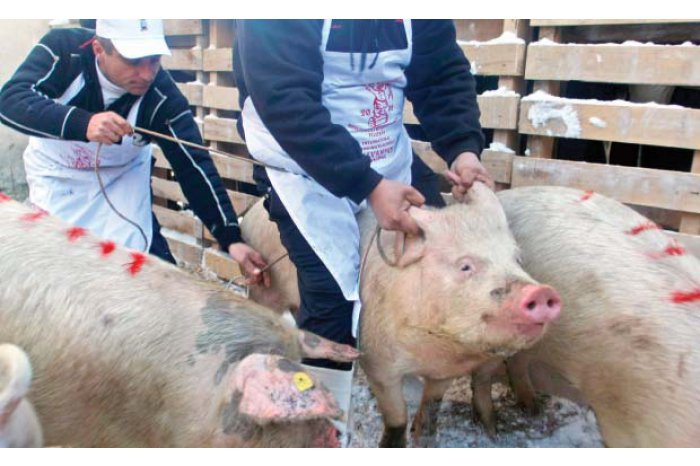Romania to boost controls at border with Moldova to prevent introduction of contaminated pork
13:49 | 09.03.2017 Category: Social
Chisinau, 9 March /MOLDPRES/ - Romania will boost controls at the entry checkpoints at the border with Moldova and Ukraine, in order to prevent the introduction of the virus with contaminated pork products from these countries. Under an urgency ordinance, approved on 8 March, the Romanian government set measures to immediately present and detect the African swine fever, for the passive supervision both in domestic pigs and wild boars.
These measures were urgently undertaken to prevent situations triggered by the evolution of major diseases with epizootic or even panzootic development in animals, able to disturb the human health and affect the activities of inter-community trade and export of Romania.
If the Romanian National Sanitary, Veterinary and Food Safety Authority confirms a hotbed of African swine fever or a hotbed of other infectious disease on the territory of a neighbor state, organized hunting of wild animals on a depth of 500 metres from the state border protection strip to the inside is allowed, with the preliminary approval by the border police sector. In exceptional situations, at a proposal by the central public authority in charge of the environmental protection and the National Sanitary, Veterinary and Food Safety Authority, the reduction or extension of the period of hunting for some species of cynegetic interest is approved under order.
Administrative procedures are simplified by these specifications, so that, in the situation when a hotbed of African swine fever or a hotbed of another infectious disease is confirmed on the territory of a neighbor state, urgent actions should be taken for the organized hunting of wild animals.
In late last September, two hotbeds of African swine fever were discovered in the Mosana and Cernoleuca villages from Moldova. Ten pigs perished after contacting the virus. The control carried by the National Agency for Food Safety in late November 2016 showed that competent institutions undertook needed measures to stop the spread of the disease. After the expiration of the term prescribed according to the methodology of fighting the African swine fever, no other cases of animals falling sick with the disease were registered. The last report on the epizootic situation in Moldova, made public in late February 2016, showed that “no cases of infectious diseases were recorded” on its territory.
(Reporter V. Bercu, editor M. Jantovan)

